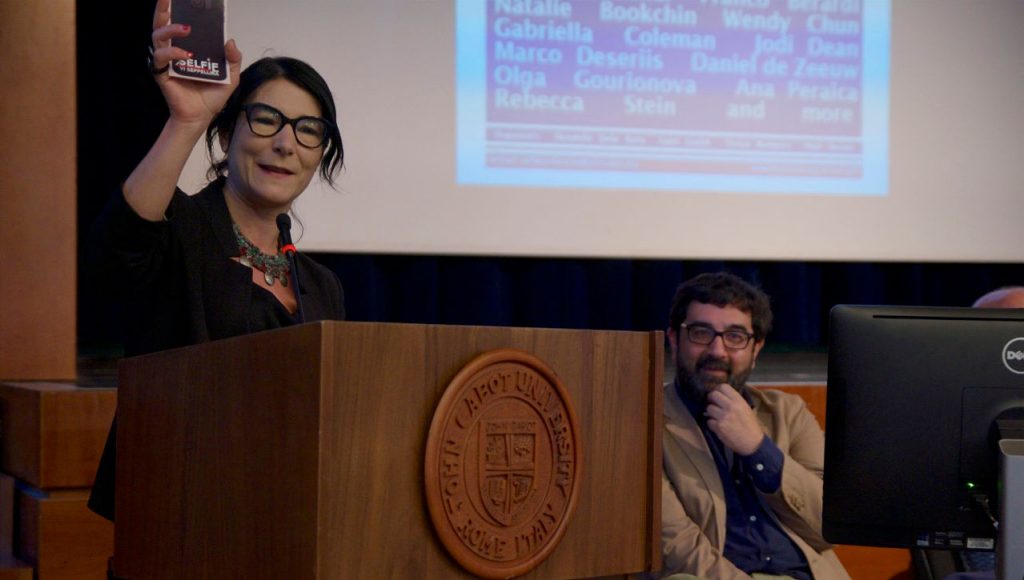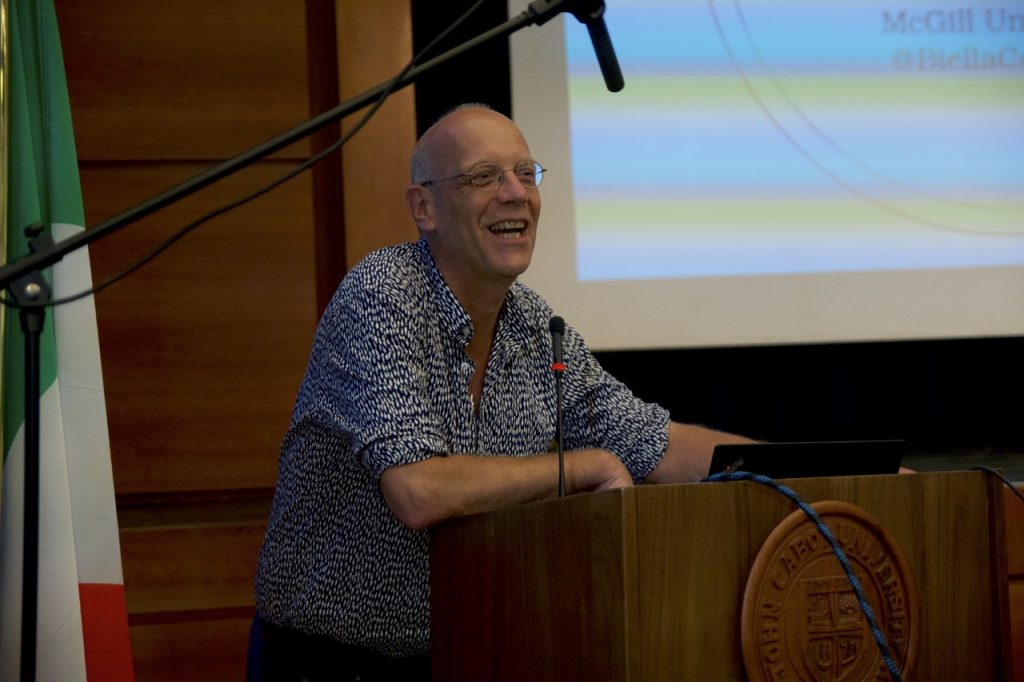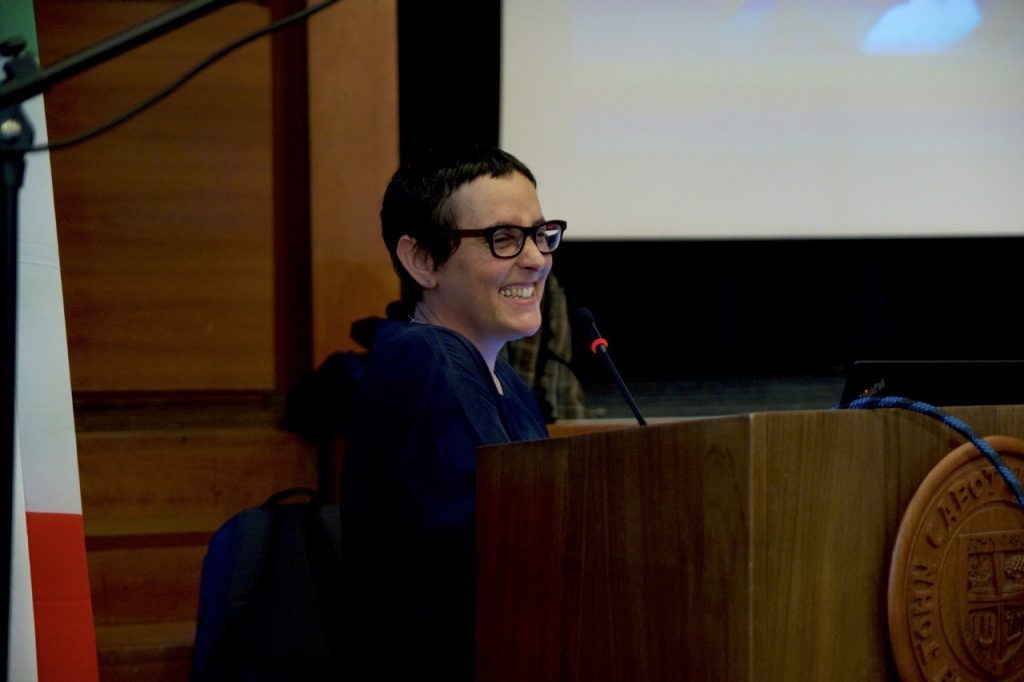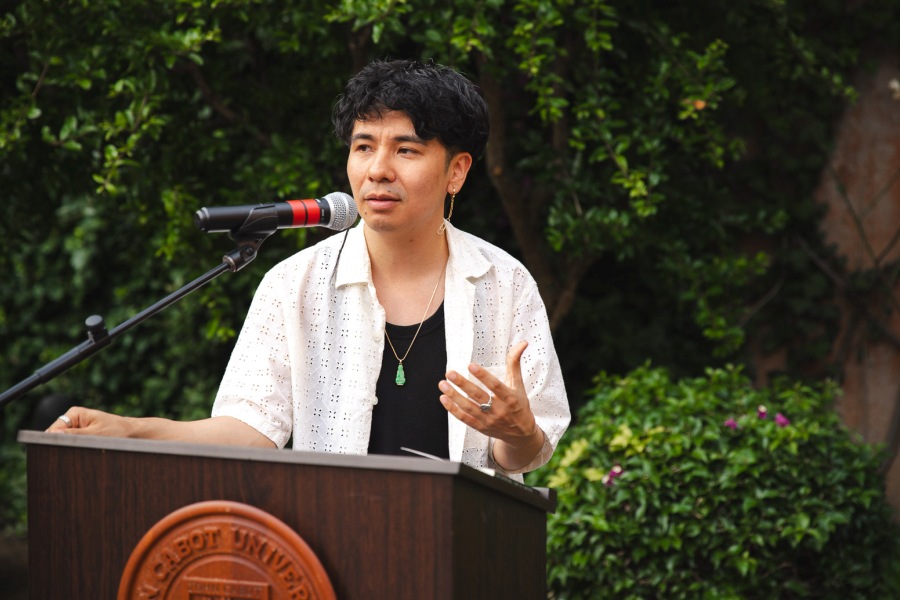JCU Hosts International Conference "Fear and Loathing of the Online Self"
On Monday, May 22, 2017, John Cabot University hosted the first day of the international conference Fear and Loathing of the Online Self, co-organized by JCU and the University of Rome “Roma Tre,” in collaboration with the Institute of Network Cultures, Amsterdam.
JCU President Franco Pavoncello opened the conference, stressing how important a strong social media presence has become, and quoting US President Donald Trump who said, “If they don’t talk about you, you don’t exist.”
The opening remarks were followed by an introduction by the four organizers of the conference: JCU Professors Peter Sarram and Donatella Della Ratta, “Roma Tre” Professor Teresa Numerico, and Geert Lovink, Professor at Hogeschool van Amsterdam and founding director of the Institute of Network Cultures.
In his introduction, Lovink explained the need to reframe the idea of the online self in what he defined “the era of fake news.” The rise of widespread disinformation caused a shift in our perception of the Internet. The Internet went from being an alternative to media manipulation to largely being the cause of it, transforming the user from an emancipated, active agent to a passive one. “We can no longer ask what we can do with the Internet, but rather what the Internet is doing to us,” Lovink said.
The rest of the morning was dedicated to the panel “Behind and Beyond Selfies,” chaired by Professor Peter Sarram. The panel featured presentations from Olga Gourionova, Ana Peraica, Rebecca Stein, Fabio Cristiano and Emilio Distretti, and Jillet Sara Sam. The discussion focused on many aspects of “selfie culture,” including the relationship between selfies, face recognition software and biometrics, the “history” of selfies starting from painted self-portraits, and what the world behind one’s back in a selfie signifies.
Ana Peraica noted how selfie culture really started to develop well before the invention of photography in 1839. It began with the invention of the mirror, which allowed artists to paint themselves. Over time there has been a shift from the self-portrait as a way to portray one’s self within a context (the background), to the disappearance of the background and focus on the sole subject. Selfies brought back the original idea of self-portrait, one characterized by the relationship between the self and the surrounding space, she said.
The afternoon was dedicated to the panel “Politics and Aesthetics of Mask Design,” chaired by Geert Lovink. The featured speakers were Biella Coleman, Daniel de Zeeuw, Alberto Micali, and Franco “Bifo” Berardi. The speakers focused on the reasons behind the rise of the Guy Fawkes mask used by the activist and hacktivist group Anonymous, the meaning of masks in self- and group-identification mechanisms, and the impact of Artificial Intelligence on real life interactions.
Biella Coleman explained how masks and anonymity are related to selfie culture, using Anonymous as an example. The anonymity and deindividualization produced by the adoption of masks is the opposite of the selfie culture’s key values: celebrity culture and individuality. She then went on to explain how Anonymous managed to avoid the terrorist label.
Fear and Loathing of the Online Self continues today at the University of Rome “Roma Tre,” with panels on “Online Subjectivity Theory” and “Artistic Practices of the Online Self.” Starting at 3:30 PM there will be a showcase of art and multimedia projects related to the subject, followed by an exhibition and live talk taking place at Esc Atelier Autogestito at 9PM.
The final event of the conference will be an encounter with Gabriella Coleman and Geert Lovink tomorrow, May 24 at Rome’s MACRO museum (Via Nizza 138). Professor Teresa Numerico from “Roma Tre”and JCU professors Donatella Della Ratta and Peter Sarram will also participate.








